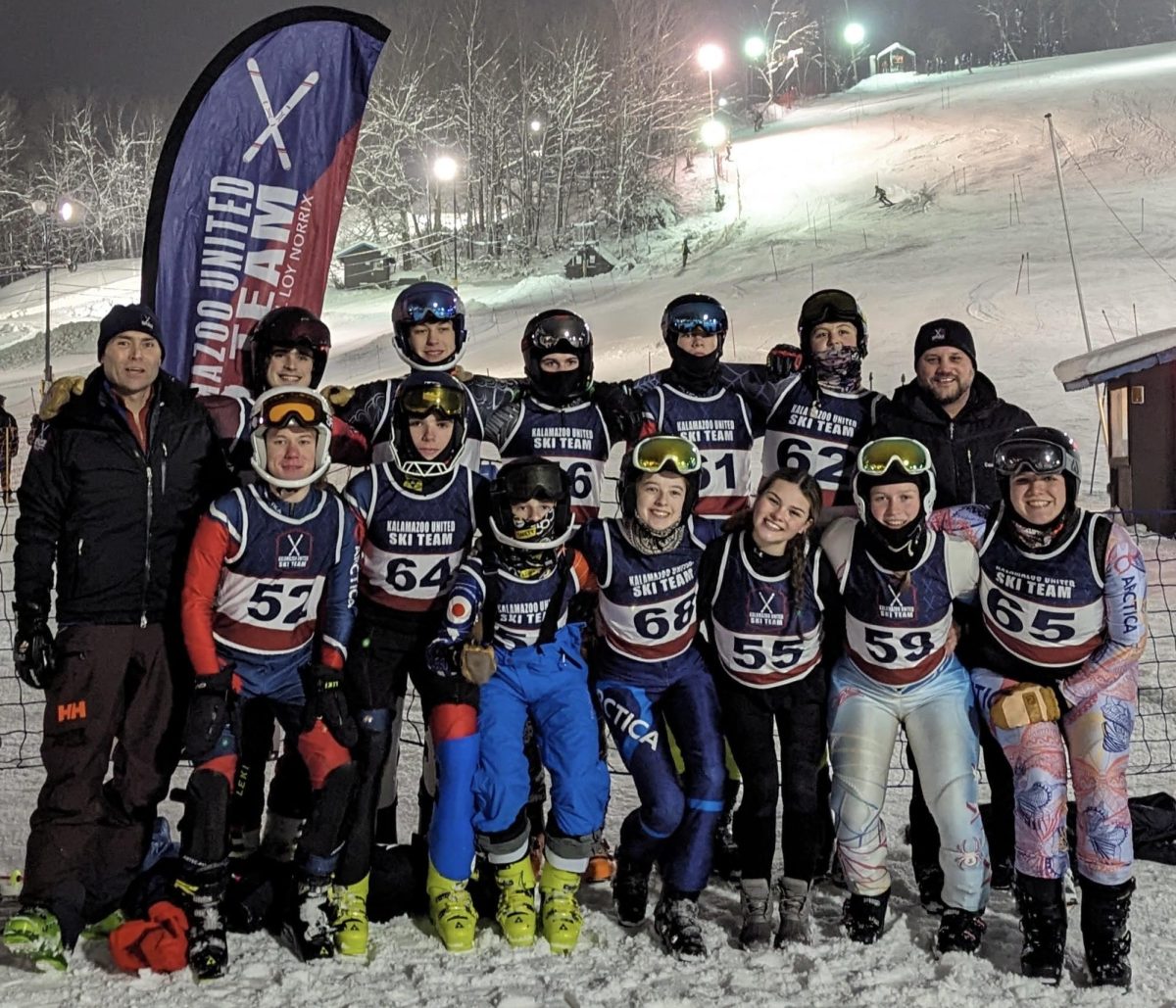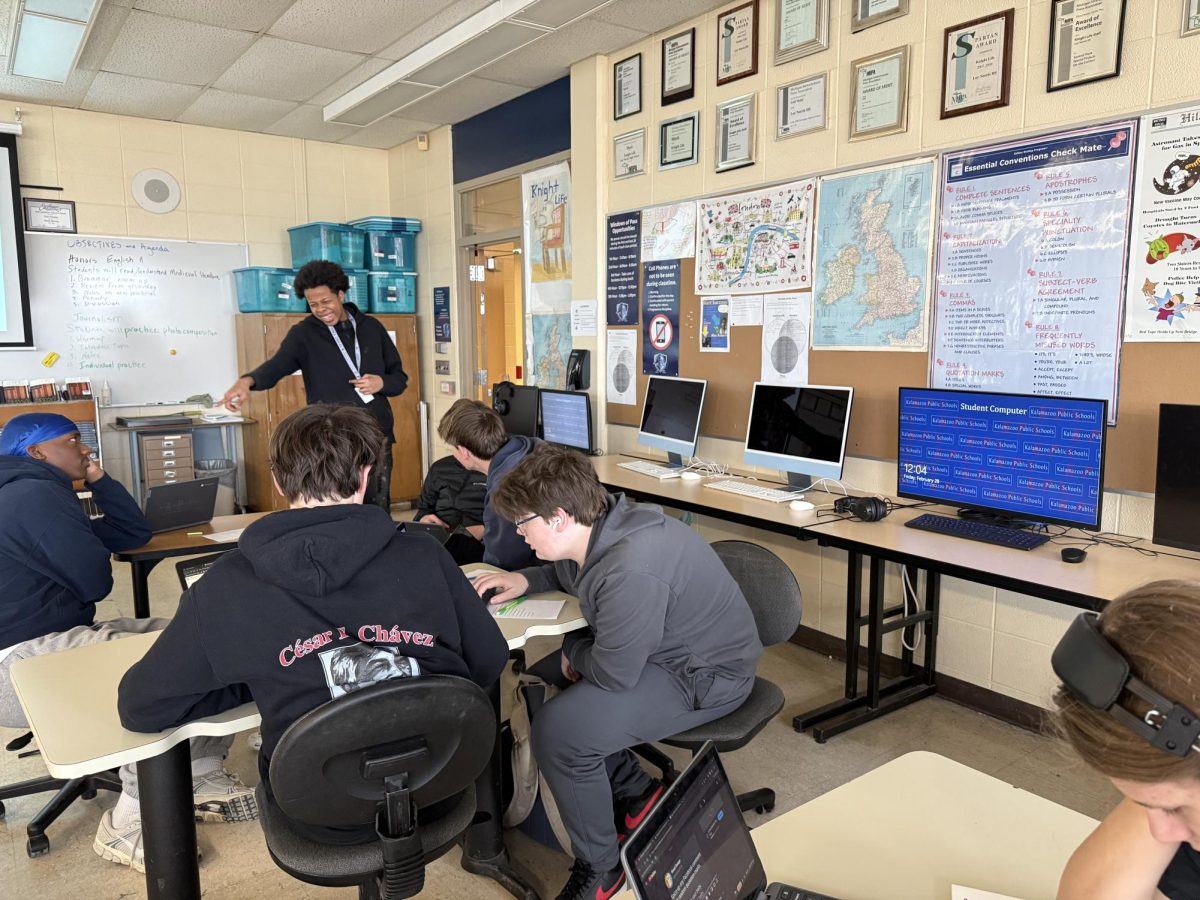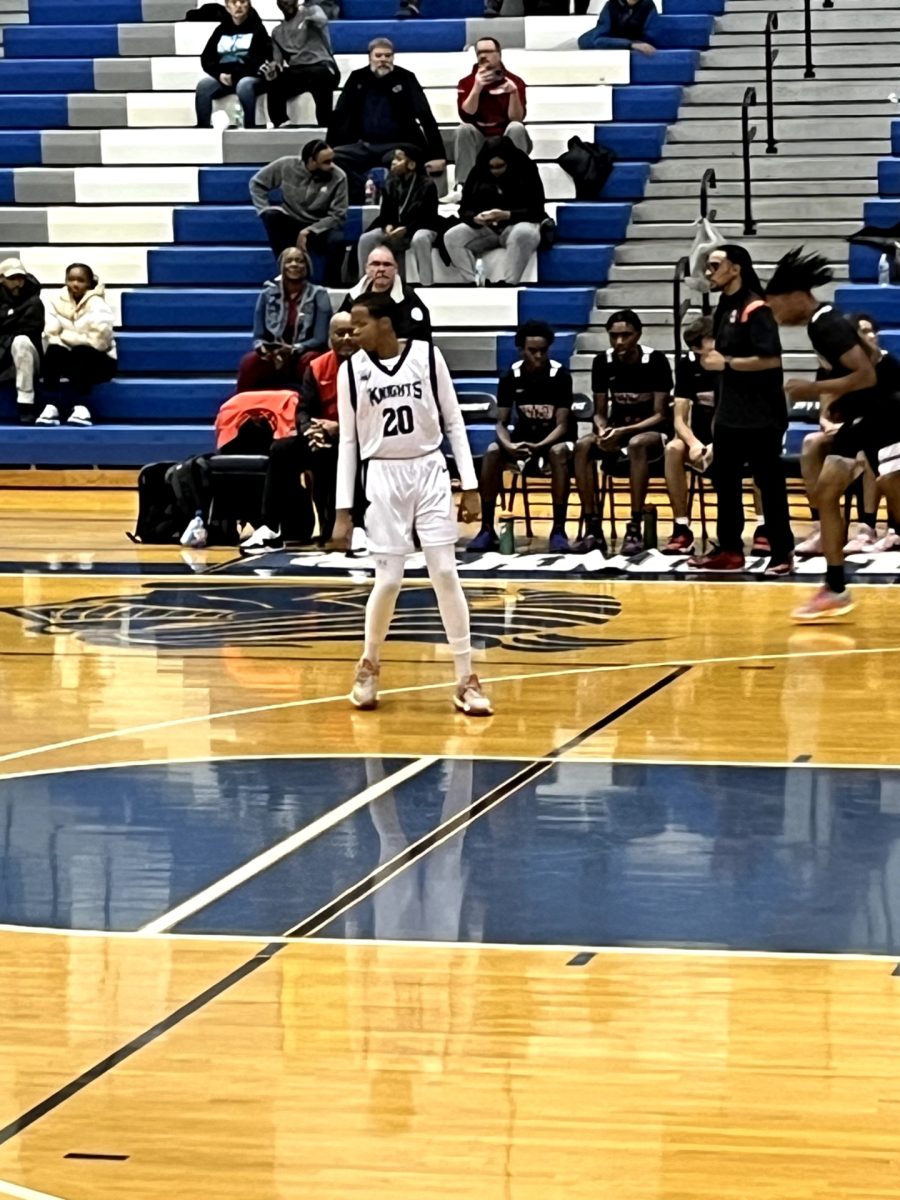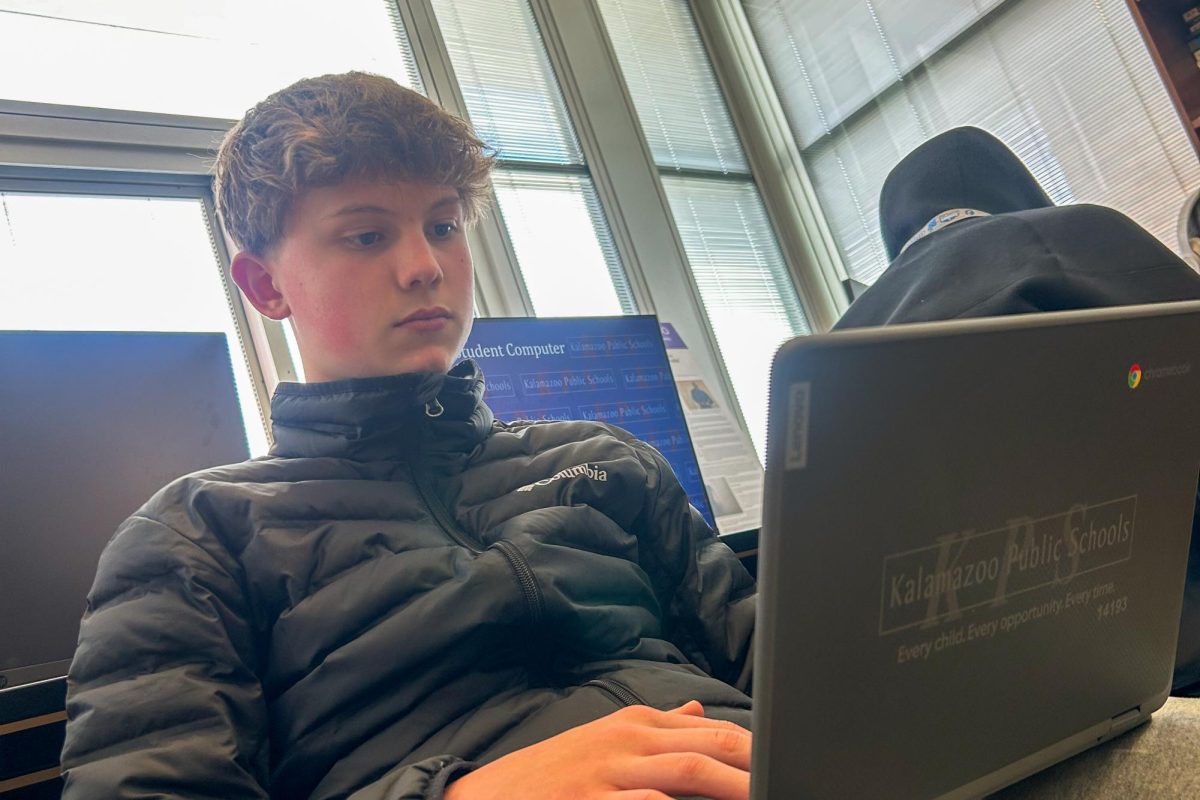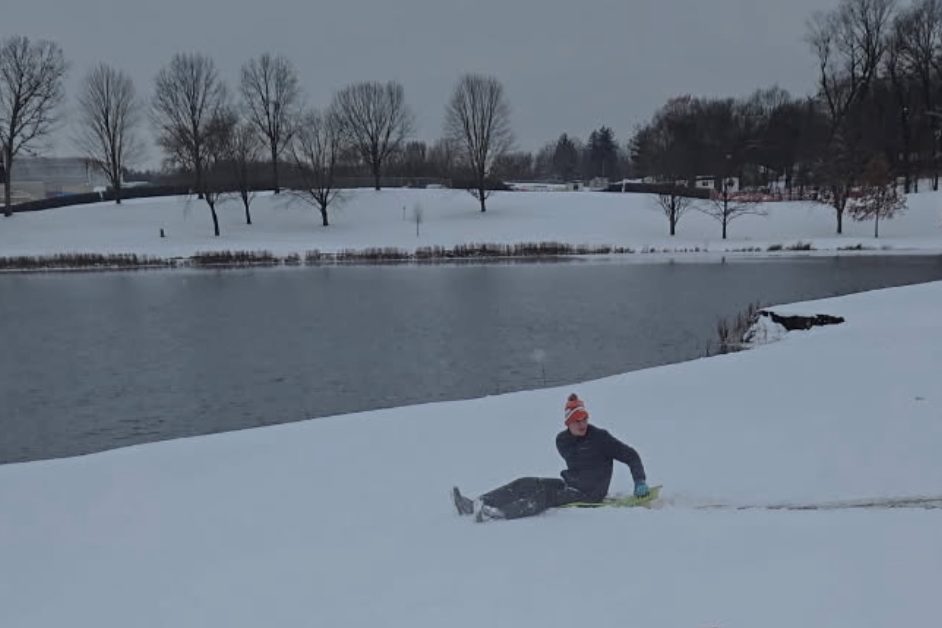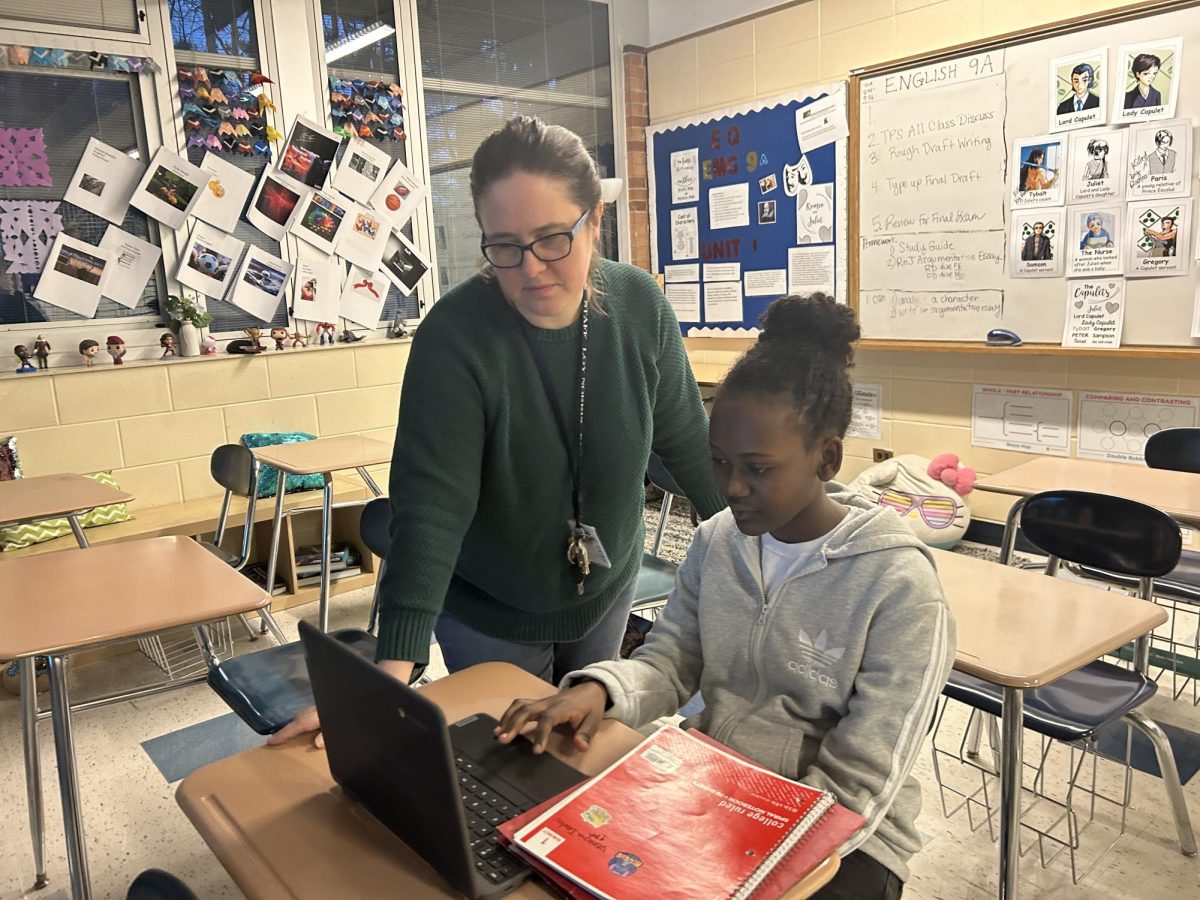You’ve spent the weekend rummaging through the attic for snow pants and boots. Your skis are waxed and propped up in the garage. To your dismay, however, the forecast for the entire week predicts rain and a high of 40 degrees, promising a slushy mess on the ski hill.
Michigan winters have been getting noticeably drier and warmer, and the low overall snowfall and extreme weather conditions have had an impact on winter sports seasons.
The Kalamazoo United Ski Club is a competitive ski-racing team that has members from both Loy Norrix and Kalamazoo Central high schools. Although pre-season conditioning starts with dry-land weight training in mid-November, the racers typically anticipate two weekly practices starting at the end of December.
However, the unseasonably dry conditions of this winter season forced the KU ski team to compete in their first race on Jan. 22, at Timber Ridge ski resort, with only three prior practices outside. The team persevered through the poor conditions however and came through with a second-place finish overall for the boy’s races and a fourth-place finish for the girls.
Junior Elizabeth Bierlein joined the team during her sophomore year. Her team had to pivot to other types of conditioning without proper snow on the mountains.
“We have gates to set up, which are like poles in the ground — if there’s not enough snow, we can’t set gates and so then we just end up doing drills or just go into the weight room,” said Bierlein. “If there’s not enough snow, sometimes we just won’t practice.”
Depending on the technology and budget available, ski resorts can start to manufacture snow on the hills when the temperatures drop below freezing overnight and remain colder throughout the day. However, warmer temperatures can melt the artificial snow and create ice on the mountain, which comes with its own set of challenges for the skiers.
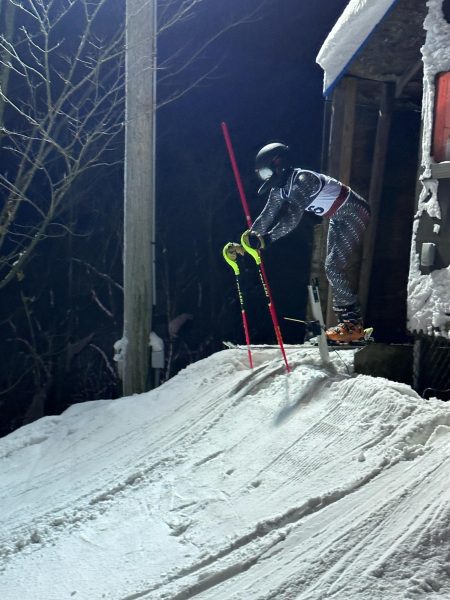
“It’s definitely worse when you don’t have enough snow or it’s melting because then the course we have to go down isn’t in the right conditions. There could be dirt patches, which can ruin your skis,” said Bierlein.
These negative impacts on the sport have become increasingly likely as Michigan winters see less snowfall.
According to MLive’s article about the lack of snow, “All Michigan cities but one are below normal on snow so far this Winter… There are just three cities that are close to normal snowfall: Sault Ste. Marie, Traverse City, and Muskegon.”
This means that skiers in the southern region of the state must travel great distances to see proper snow or manage the poor conditions and lack of opportunity to get on the mountain.
Ski mountains cannot open without a solid base of snow, and they cannot begin to make artificial snow until the temperatures are low enough for the snow to stick. According to MLive’s article, Southwest Michigan just had a Top 10 warmest winter, the 2022-2023 winter season in Kalamazoo was the third-warmest on record with an average daily temperature of 31.8 degrees.
With these unprecedented temperatures and unreliable conditions on the mountain, many students who want to pursue the sport must seek alternative places to ski. Sophomore Gavin Lepley commented on his reservations about committing to a season pass to ski in Kalamazoo. The starting price for a season pass at Timber Ridge is $550 and $701 at Bittersweet for ages 13+.
“It’s definitely an issue, especially because buying a season pass now you don’t really know how much or even when you’re going to get to use it,” said Lepley.
Traveling long distances to find proper snow has become the new normal for fans of winter sports, however, the additional travel expenses can pile up on an already expensive sport.
“It’s just not working out down here. It’s definitely not an accessible sport which is really sad,” said Bierlein. “I think it not being available as much locally, to have to go further north, definitely will be a big barrier for people — you have to start thinking about lodging and gas.”
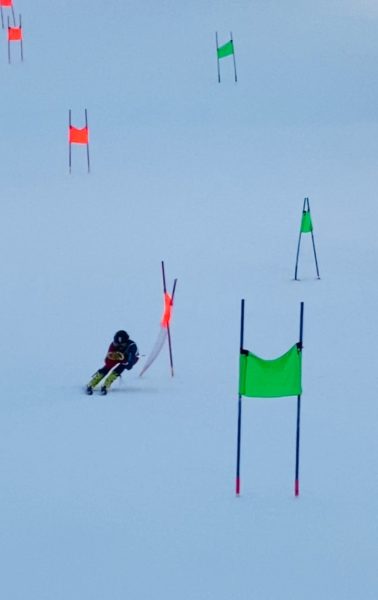
Lepely noted that the key to having a successful season, despite the challenges in getting time on the mountain, is to supplement ski practice with other physical exercise.
“I’m on the swim team, so I’ve been using that as strength training. That’s the biggest thing: really just staying in shape,” said Lepley.
Alpine ski racing is the only Michigan High School Athletic Association sport that competes outdoors in the winter, and regardless of the weather, students find a sense of satisfaction in simply getting outdoors and being part of a community.
“I think it’s great for me to be on the team. It’s really fun to just get out and keep my mood up in the winter when there’s not a ton else to do,” said Lepley.


